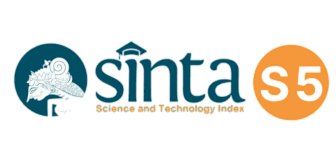PRO DAN KONTRA TERHADAP KEBIJAKAN MANTAN NARAPIDANA KORUPSI DALAM PENCALONAN LEGISLATIF
Downloads
his study discusses the prohibition of ex-corruption convicts who registered themselves as legislative candidates. Even this is supported by Article 7 paragraph 1 letter g PKPU. However, the Bawaslu (Election Oversight Body) allowed it and it is also supported by Yasonna Laoly, Minister of Justice and Human Rights of Indonesia, with the consideration that the regulations stipulated by PKPU contradict Law No. 7 of 2017 which states that ex-convicts are considered to have the same political rights as other citizens, a right guaranteed by the constitution. This study employs political contestation theory that explains the actions or processes that are disputed, for example ideological contestation on social policy, as well as political electoral theory that explains a system for making political decisions in which individuals gain the power to decide through competitive over people's voices.
Budiarjo M & Ibrahim A (1993) Fungsi legislatif dalam Sistem Politik Indonesia. Jakarta: Raja Grafindo Persada.
Gentzkow M, Glaeser E, Goldin C (2006) The rise of the fourth estate: How newspapers became informative and why it mattered. National Bureau of Economic Research.
Hapsari H (2018) Dilema pelarangan mantan narapidana korupsi mendaftarkan diri sebagai calon legislatif. Seminar Nasional Hukum Universitas Semarang, 6(2).
Huda K & Zulfa AF (2018) Pemilu presiden 2019: Antara kontestasi politik dan persaingan pemicu perpecahan bangsa. Seminar Nasional Hukum Universitas Negeri Semarang, 4(3).
Nye JS (2009) Corruption and Political Development: A Case-Benefit Analysis. In Heidenheimer AJ and Johnston M. (Eds.) Political Corruption, Concepts and Contexts. Third Ed. New Jersey: Transaction Publishers.
Pipit (2014) Demokrasi Elektoral (Bagian I): Perbandingan Sistem dan Metode dalam Kepartaian dan Pemilu. Surabaya: Sindikasi Indonesia.
Wiener A (2004) A Theory of Contestation. Germany: Springer.
- Copyright of this journal is possession of Editorial Board and Journal Manager, by the knowledge of the author, while the moral right of the publication belongs to the author.
- The formal legal aspect of journal publication accessibility refers to Creative Commons Atribusi-Non Commercial-Share Alike (CC BY-NC-SA), implies that publication can be used for non-commercial purposes in its original form (cannot be modified).
- Every publication (printed/electronic) are open access for educational purposes, research, and library. Other than the aims mentioned above, the editorial board is not responsible for copyright violation.












